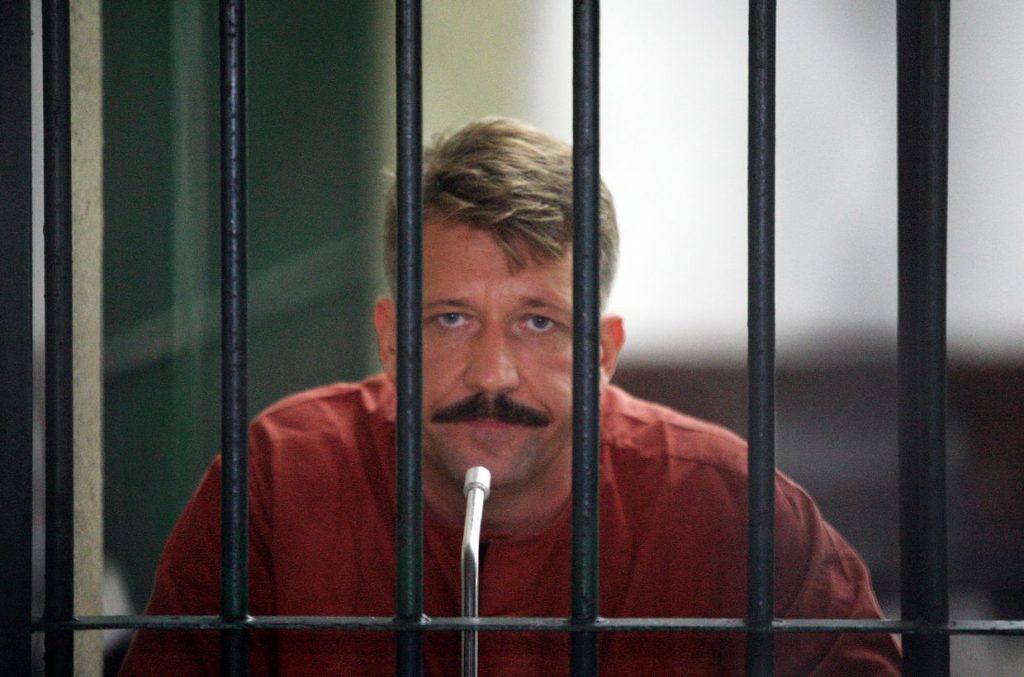Russian arms dealer Viktor Bout, known for his decades-long history of selling weapons to various clients, including those in the Middle East, South America, and Africa, is now suspected of preparing a small arms deal with Yemen’s Iran-backed Houthi militants. After gaining fame in 2005 through a movie titled “Lord of War,” Bout was arrested in 2008 and imprisoned in the U.S. However, he was released almost two years ago in a prisoner exchange with Russia for U.S. basketball star Brittney Griner. The potential deal with the Houthi militia involves the purchase of $10 million worth of automatic weapons, although it would not include anti-ship or anti-air missiles that could threaten the U.S. military’s operations. Russian supersonic Yakhont (Onyx) missiles are also being discussed for supply to the Houthis, with Iran acting as a mediator in these negotiations.
Yemen’s Houthis, an Iran-backed Muslim group designated as terrorists by the U.S., have been involved in the country’s decade-long civil war and have recently begun attacking cargo ships in the Red Sea in response to Israel’s military actions in the Gaza Strip. The involvement of arms dealers like Viktor Bout raises concerns about the proliferation of arms in the region and the potential impact on international security. Russia’s close ties with Iran, as well as its history of supplying drones and ballistic missiles to Moscow, add a layer of complexity to the situation. These developments highlight the role of external actors in conflicts in the Middle East and the challenges they pose to efforts to maintain peace and stability in the region.
In a separate but related development, Vadim Krasikov, an assassin linked to the Kremlin, has been imprisoned in Germany since 2021 after receiving a life sentence for the murder of Zelimkhan Khangoshvili. This case underscores the interconnected nature of international security issues and the potential consequences of illicit activities such as assassinations and arms trafficking. The involvement of individuals like Krasikov, who operate on behalf of powerful states like Russia, also raises questions about the role of state actors in perpetuating conflict and instability in various regions.
The implications of these recent developments extend beyond the immediate context of arms deals and assassinations, highlighting broader issues related to security, diplomacy, and geopolitics. The actions of individuals like Viktor Bout and Vadim Krasikov underscore the challenges faced by the international community in addressing threats to peace and security, particularly in regions marked by conflict and instability. The role of Russia, Iran, and other major players in mediating arms deals and supporting proxy groups adds a layer of complexity to efforts to resolve conflicts and promote stability. As such, the need for multilateral cooperation and diplomatic engagement in addressing these challenges becomes increasingly critical.
The case of Viktor Bout and his alleged involvement in the arms deal with the Houthi militants serves as a reminder of the enduring presence of illicit arms trade and its impact on global security. The ability of individuals like Bout to navigate complex geopolitical dynamics and engage in arms deals with armed groups underscores the need for enhanced international cooperation to address the root causes of conflict and prevent the proliferation of weapons. Efforts to regulate arms trafficking and hold individuals and states accountable for their actions are crucial in mitigating the risks associated with the spread of arms in conflict zones.
In conclusion, the reported arms deal involving Viktor Bout and the Houthi militants sheds light on the interconnected nature of conflicts in the Middle East and the role of external actors in fueling instability. The involvement of individuals linked to state actors like Russia highlights the challenges faced in regulating arms trade and preventing illicit activities that contribute to violence and insecurity. Addressing these complex security challenges requires a comprehensive approach that involves diplomatic engagement, multilateral cooperation, and efforts to hold accountable those responsible for perpetuating conflict and instability. Only through concerted international action can the root causes of conflict be addressed and sustainable peace and security be achieved in regions affected by ongoing violence and turmoil.















